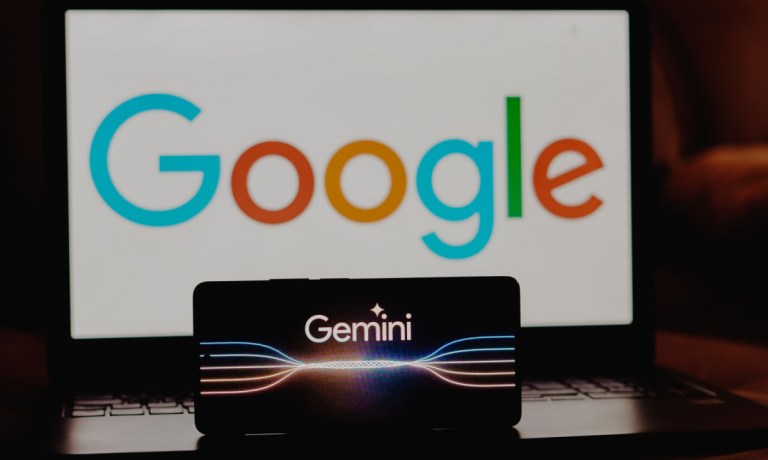
Google’s latest artificial intelligence models could accelerate AI adoption in eCommerce and retail, developers say, as the tech giant unveils upgrades designed to attract more businesses to its Gemini platform.
The company announced two updated production-ready models in a Tuesday (Sept. 24) blog post, Gemini-1.5-Pro-002 and Gemini-1.5-Flash-002, which offer enhanced capabilities across a range of tasks, including product recommendations, inventory management and customer service automation.
“The new release introduces advanced capabilities in math and vision tasks,” Sujan Abraham, a senior software engineer at AI firm Labelbox, told PYMNTS. “These models are designed for a wide range of tasks, including text, code and multimodal applications. They can process larger and much more complex inputs like 1,000-page PDFs, massive code repos and hour-long videos. These models are faster, better and more cost-efficient for production environments.”
In a move likely to intensify competition in the AI market, Google is reducing pricing for its Gemini-1.5-Pro model by more than 50% for both input and output on prompts under 128,000 tokens. The company is also doubling rate limits for the 1.5 Flash model and tripling them for 1.5 Pro.
“To make it even easier for developers to build with Gemini, we are increasing the paid tier rate limits for 1.5 Flash to 2,000 RPM and increasing 1.5 Pro to 1,000 RPM, up from 1,000 and 360, respectively,” the post stated.
Performance improvements are up, with Google reporting an approximate 7% increase in scores on the MMLU-Pro benchmark, which measures general knowledge and reasoning abilities. Both models showed a “considerable ~20% improvement” on math-related benchmarks, according to the post.
“The Gemini 1.5 series is more efficient across the board,” Jorge Argota, founder of an AI consultancy, told PYMNTS. “These models are text, code and multimodal. When dealing with complex math or code, they are more understanding and accurate. This could be a game changer for eCommerce platforms looking to implement advanced AI features.”
Argota highlighted the extended context window as a significant advancement.
“The models can now process up to 2 million tokens, which is a big jump from previous versions,” he said. “This means they can handle long documents and multimedia inputs with ease. For projects with large datasets or long documents, this is a huge win.”
The updates also address speed and efficiency concerns.
“Along with core improvements to our latest models, over the last few weeks we have driven down the latency with 1.5 Flash and significantly increased the output tokens per second, enabling new use cases with our most powerful models,” Google’s blog post said.
Argota noted several key new features, including “Gems, personalized AI assistants,” which allows users to create custom AI assistants for specific tasks. He also mentioned the Imagen 3 model, “an advanced image generation model that produces higher quality images from text prompts,” and Gemini Live, which enhances conversational AI interactions through voice conversations.
The price reductions and increased rate limits are expected to impact businesses.
“The 15% price drop and increased rate limits is a big win for businesses looking to add AI to their workflows,” Argota said. “The cost savings makes these advanced models more affordable, especially for startups and small businesses that were hesitant to get in due to budget constraints.”
Google’s push to make its AI models more attractive to developers comes as competition in the sector intensifies, with rivals like OpenAI and Anthropic also vying for market share.
The company is betting that these improvements will encourage more developers to build applications using Gemini, potentially leading to broader adoption of Google’s AI technologies.
“We continue to be blown away with the creative and useful applications of Gemini 1.5 Pro’s 2 million token long context window and multimodal capabilities,” the blog post said. “From video understanding to processing 1,000-page PDFs, there are so many new use cases still to be built.”
In addition to the production models, Google is releasing an experimental version called “Gemini-1.5-Flash-8B-Exp-0924,” which the post said includes “significant performance increases across both text and multimodal use cases.”
The updates also include changes to the models’ default filter settings, giving developers more control over content moderation.
“For the models released today, the filters will not be applied by default so that developers can determine the configuration best suited for their use case,” the post said.
As the AI arms race continues, Google’s latest move signals its commitment to remaining competitive in a rapidly evolving market. With these enhancements, the company aims to solidify its position as a provider of AI tools for developers and businesses.
“Overall, a big win for businesses looking to add AI to their workflows,” Argota said.
For all PYMNTS AI coverage, subscribe to the daily AI Newsletter.